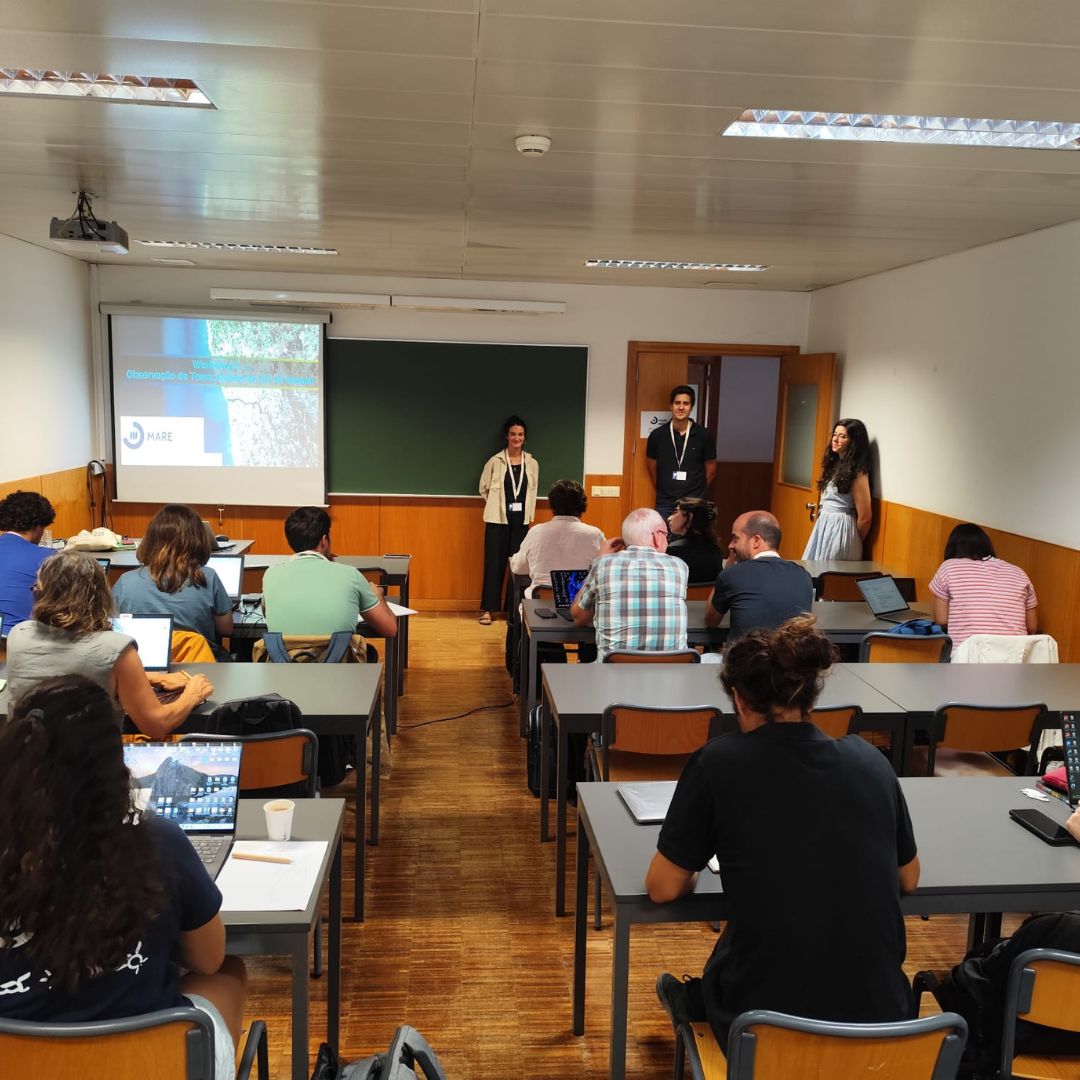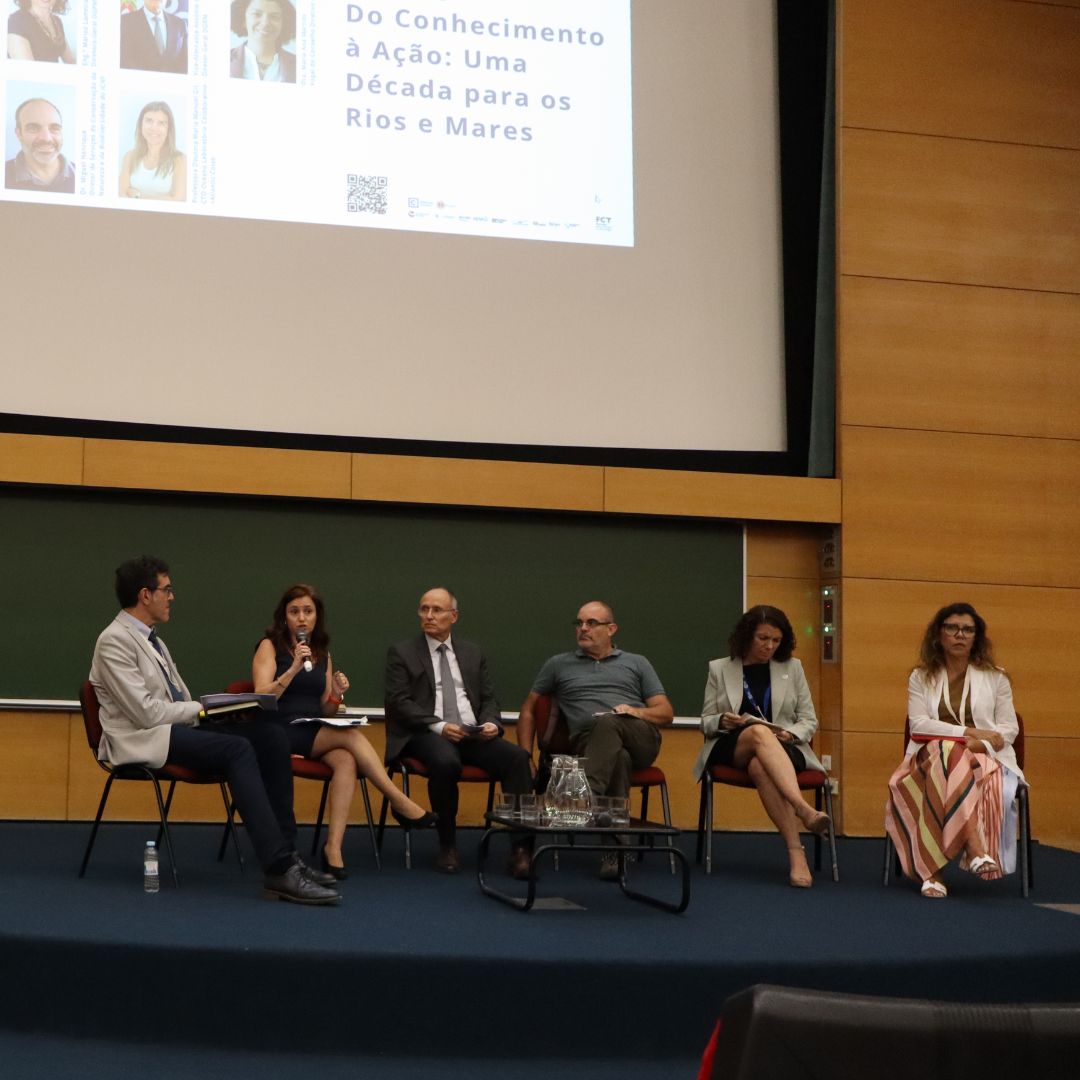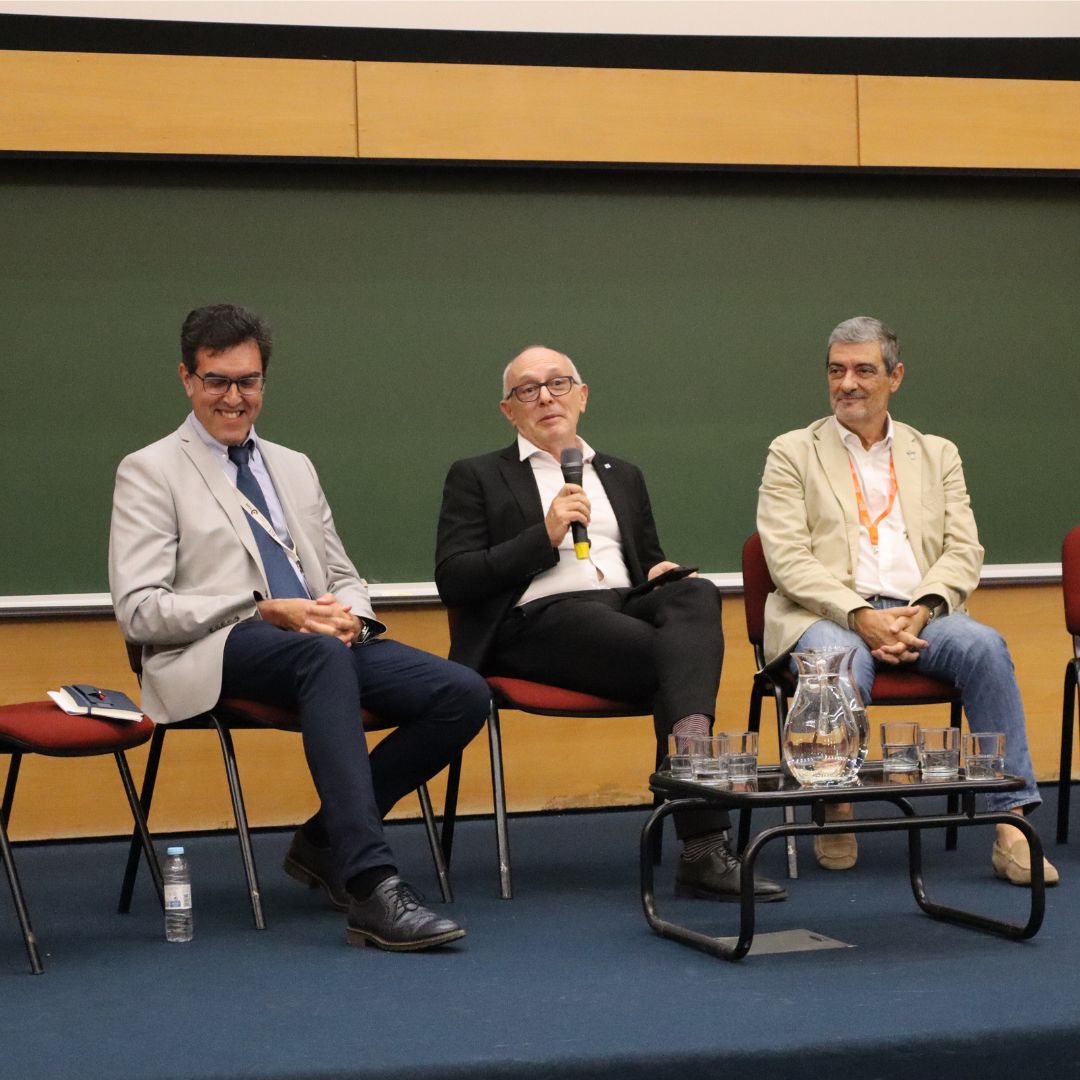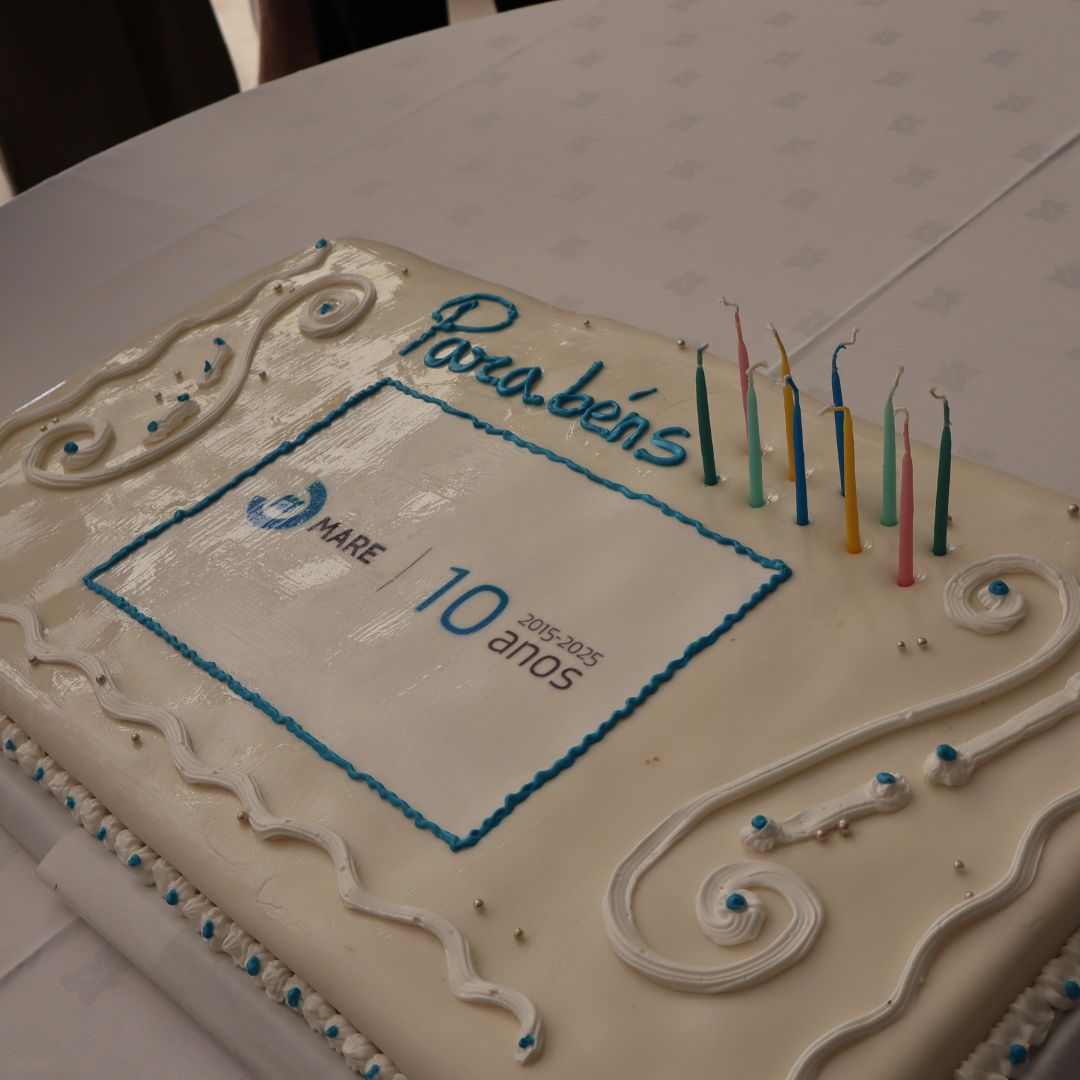Encontro MARE 2025
September 12 was marked by another edition of the MARE Meeting. This year, it was the turn of CIÊNCIAS at the University of Lisbon to welcome more than 200 researchers from MARE's eight regional research units.

Morning
This event was once again characterized by a day full of workshops that allowed MARE researchers to share their knowledge in the areas of aquatic sciences and the environment, while acquiring new skills in an environment of sharing and mutual support.
The workshop “Creating value from R&D: a roadmap” was a perfect example of collaboration between MARE's regional research units. Members of the transfer offices of FCT NOVA and the Polytechnic Institute of Setúbal gave participants the opportunity to reflect on the value of knowledge generated from applied R&D. The workshop addressed topics related to mechanisms that aim to transform the knowledge generated into practical applications through processes of protection and transfer of intellectual assets to society.
Another workshop resulting from collaboration between units was “CoastNet monitoring network: past, present, and future,” where MARE-UÉvora and MARE-ULisboa presented the CoastNet infrastructure. The workshop discussed its evolution within the institution and in the national and international context, followed by a practical session on how to use it and download the respective data in the remaining time.
MARE-ULisboa was also responsible for organizing four more workshops: “Successful Applications: ERC, La Caixa, and Marie Curie,” “Thinking Like Nature – Integrating Biomimicry into Research,” “Earth Observation: Ocean Color Analysis,” and “Introduction to Biostatistics with R: Basic Functions and Dynamic Reports.”
In turn, MARE-IPLeiria and MARE-Madeira contributed with the workshops “Explore, Create, and Taste: A New Flavor with Ingredients from the Sea” and “Sharing Science with Creativity – Introduction to Video and Design for Social Networks,” respectively.
MARE-NOVA was also responsible for organizing the working group “Social Impact of Research,” where new strategies to increase social impact and stakeholder involvement were discussed.
In addition to these initiatives, this year's edition featured a workshop led by Sandra Protásio, from ReData in colaboration with NOVA.ID-RDM_CC, entitled “Electronic Lab Books: Introduction to eLabFTW.” This introductory session presented the main advantages of using electronic lab notebooks, in particular eLabFTW, addressing the principles of good practice in scientific data management, the importance of accurate documentation in a laboratory environment, and the adoption of digital tools for its implementation.

Afternoon
After lunch and a group photo, the researchers headed to the large auditorium at CIÊNCIAS to begin the afternoon's activities.
Pedro Raposo de Almeida opened the session with a few words about MARE's role in the future of science in Portugal and its influence on public policy-making. The Director also highlighted MARE's remarkable ability to face challenges, which is the result of the cooperation and team spirit that define it. This was also an opportunity for the other researchers and members of MARE to speak, thus promoting discussion and the sharing of ideas for the growth and evolution of MARE in the future.
This was followed by the round table discussion “From Knowledge to Action: A Decade for Rivers and Seas,” with the participation of Marisa Lameiras da Silva, Director-General of Maritime Policy (DGPM), Vice Admiral António Coelho Cândido, Director-General of Natural Resources, Security, and Maritime Services (DGRM), Dr. Miguel Henriques, Director of the Department of Nature Conservation and Biodiversity at ICNF, Dr. Maria Ana Martins, Member of the Board of Directors at IPMA, and Professor Maria Manuel Gil, researcher at MARE and CTO Oceano at the +Atlantic Colab Collaborative Laboratory. This round table, moderated by MARE Director Pedro Raposo de Almeida, featured a debate on strategic paths for science and policy for water and the ocean in Portugal following the United Nations Conference on the Ocean (UNOC3). The conversation addressed political priorities, interinstitutional collaborations, data and interoperability, literacy, and the articulation between science and innovation.

Throughout the debate, the fact that MARE develops science collaboratively between the various universities and institutions that comprise it was widely appreciated. This characteristic of MARE allows it to address the current needs of science in Portugal: aligning research with practical objectives through multidisciplinarity, improving the connection between universities and research centers. In addition, the importance of science in the formulation of public policies was highlighted, emphasizing the need to promote science applied to diplomacy in order to support the development of political strategies based on robust scientific data.
After the Round Table, Professor Ricardo Melo, Coordinator of MARE-ULisboa, and Professor Luís Carriço, Director of SCIENCES at the University of Lisbon, joined the Director of MARE for the closing session, where MARE's 10th anniversary was celebrated. Ricardo Melo highlighted how the creation of MARE was “a dream of several generations come true.” He also expressed his gratitude for the opportunity to have been the coordinator of MARE-ULisboa and for the support he received during his tenure.
Professor Luís Carriço, who has accompanied MARE for the last seven years, said he was “dazzled” by MARE and its achievements, hoping for greater recognition in the future. The director of CIÊNCIAS also said that he will continue to support MARE during his term of office, ending his speech by mentioning that we are in times of change and that it will be necessary to “reinvent ourselves as researchers.”
After the closing session, the researchers gathered for a snack to celebrate MARE's 10th anniversary, where they were able to socialize, reminisce about memorable moments from the last decade, and celebrate by cutting the birthday cake.
Happy Birthday, MARE!

Text by Patrícia Carvalho
